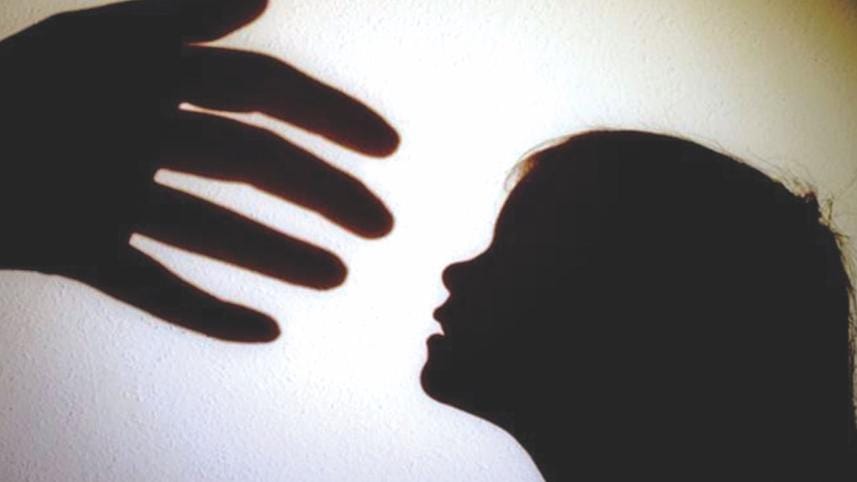A society free from corporal punishment

In Tanzania, teacher Respicius Patrick Mutazangira (51) has been sentenced to death by hanging for murdering pupil Sperius Eradius (14) through the "malicious and zealous" use of corporal punishment.
The teenager was stabbed by Mutazangira with a compass and beaten with firewood for three hours, in an attempt to get Sperius to confess to stealing a colleague's handbag. The boy died from "neurogenic shock", which is typically caused by traumatic brain or spine injuries, the court heard.
Judge Lameck Mlacha found Mutazangira "guilty beyond reasonable doubt of the crime of voluntary homicide" and sentenced him to death by hanging, the BBC reports.
In Bangladesh, there have been horrifically sad cases of children been chained to planks of wood, locked in dark rooms and not given any food or water for days in madrasas. There have been many cases of children who had their jaws broken... their legs broken... their fingers broken... children losing their eyesight and their sense of hearing.
In some rare cases, their willingness to live was zapped from their tender souls and they committed suicide to escape.
Make no mistake, what happened to young Sperius in Tanzania can happen anywhere: possibly to your child, a relative, neighbour or friend.
In an environment where corporal punishment is practised, the amount of damage it can do is unimaginable. We must never forget the 14 young girls who were scarred for life after a school "teacher" took a red-hot cooking spatula to their legs, at the Talimul Quran Mahila Madrasa at Namashyampur in Dhaka's Kadamtali area, to demonstrate her concept of "pain from fire in hell" for not performing prayers regularly.
Or the 18-year-old pupil at St Peter's Kandara Boys' High School in Kenya who was given four strokes of a cane on his buttocks and had to have one of his testicles removed.
There are many such cases, some even more ugly than the ones mentioned, but are never reported.
Loss of, or damage to, eyesight; perforated eardrums; broken fingers, hands, arms and legs; wounds and scars; dislocated shoulders and collarbones; and twisted spines, just to mention a few, serve as physical and mental reminders to many pupils of how horrific ignorant, evil "teachers" can be.
No doubt many of the cruel acts were not intended to have such horrific results. I'd hate to think "teachers" are that evil, but that they were swept away in the moment and temporarily lost control of their senses. On the other hand, the "teacher" in Tanzania had three hours to think about what he was doing.
On January 13, 2011, a law was introduced in Bangladesh to protect what is commonly referred to as "the supreme assets of the nation"—the children.
High Court Divisional bench comprising Justice Md Imman Ali and Justice Md Sheikh Hassan Arif outlawed corporal punishment in Bangladesh's schools and madrasas, declaring it to be "cruel, inhuman and degrading treatment and a clear violation of a child's fundamental right to life, liberty and freedom."
There's been a lot of talk over the years comparing and erroneously equating corporal punishment to discipline—reducing the horrific sordid act of abuse to the more acceptable (and welcomed) term "discipline".
That great Bengali and illustrious intellectual Rabindranath Tagore, who abhorred corporal punishment, said: "To discipline means to teach, not to punish."
Without being told corporal punishment is wrong by intellectuals like Tagore, and Justices Ali and Arif, among others, what has became of virtues like love and compassion that God gave to every individual at birth? Surely, being able to tell the difference between right and wrong is instinctive. What's natural about kicking and beating children with sticks?
Just recently, Prime Minister Sheikh Hasina spoke out and called upon all "not to exert additional pressure on the tender-hearted children for studying instead of giving them education with joy." She went on to say: "It should be taken care by all that the children can get education amid cheerfulness and play and without having fear."
Well said, madam prime minister. When corporal punishment exits school classrooms, the joy of learning begins.
Children are human beings. We must also accept they have feelings similar to our own. What adult do you know who welcomes being slapped in the face with a shoe, kicked, hair-pulled, ears-twisted, beaten across the head with a metal scale, or abused in other ways? Is that conducive to good learning?
It is tragic that so many children have suffered so cruelly at the hands of corporal punishment over the decades and for so many to carry unseen physical or mental scars and wounds in their hearts.
It is wrong that children still suffer due to the ignorance of some "teachers" and imams. Just by addressing this one issue alone with sincerity will significantly help build a society in Bangladesh that will make everyone proud and productive.
Sir Frank Peters is a former newspaper and magazine publisher and editor, a royal goodwill ambassador, a humanitarian and a respected foreign non-political friend of Bangladesh.



Comments